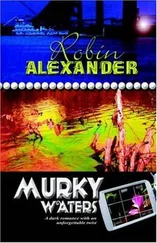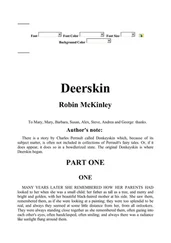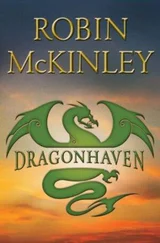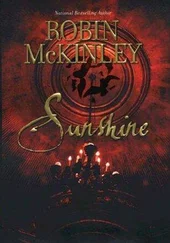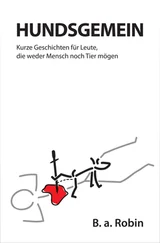Robin McKinley - Water
Здесь есть возможность читать онлайн «Robin McKinley - Water» весь текст электронной книги совершенно бесплатно (целиком полную версию без сокращений). В некоторых случаях можно слушать аудио, скачать через торрент в формате fb2 и присутствует краткое содержание. Год выпуска: 2002, ISBN: 2002, Издательство: Firebird, Жанр: Старинная литература, на английском языке. Описание произведения, (предисловие) а так же отзывы посетителей доступны на портале библиотеки ЛибКат.
- Название:Water
- Автор:
- Издательство:Firebird
- Жанр:
- Год:2002
- ISBN:9780142402443
- Рейтинг книги:4 / 5. Голосов: 1
-
Избранное:Добавить в избранное
- Отзывы:
-
Ваша оценка:
- 80
- 1
- 2
- 3
- 4
- 5
Water: краткое содержание, описание и аннотация
Предлагаем к чтению аннотацию, описание, краткое содержание или предисловие (зависит от того, что написал сам автор книги «Water»). Если вы не нашли необходимую информацию о книге — напишите в комментариях, мы постараемся отыскать её.
Water — читать онлайн бесплатно полную книгу (весь текст) целиком
Ниже представлен текст книги, разбитый по страницам. Система сохранения места последней прочитанной страницы, позволяет с удобством читать онлайн бесплатно книгу «Water», без необходимости каждый раз заново искать на чём Вы остановились. Поставьте закладку, и сможете в любой момент перейти на страницу, на которой закончили чтение.
Интервал:
Закладка:
When she dreamt of nothing again that night, she almost didn’t care. When she woke up, she looked in the tiny box on her chest of drawers and the sand was still there on this second morning, and then she went downstairs to get breakfast. Today was her day to drive to the mall. Usually, if her list was not too long, she could spare an hour for herself. And today she wanted to go to the library.
It took more time to get to the mall than usual; she had had to go the long way round their block because of the fallen tree that still lay in the broken remains of their front paling, and there were other trees down elsewhere that the exhausted and overburdened county council had not yet cut up and hauled away. In one place the road had caved in where a flash flood had undermined it. There were detours and orange warning cones and temporary stoplights, and when she finally got there, some of the car park at the mall was blocked off. She’d have barely half an hour at the library, and only if she pelted through the rest first.
She didn’t go to the library very often any more, since she had had to stop school. She didn’t have much time for reading, and she couldn’t think of any book she wanted to read: both fiction and nonfiction only reminded her of what she wasn’t doing and might never do. She did read seed catalogues, intensely, from cover to cover, every winter, and the off-beat gardening books and even more bizarre popular science books Ruth bought her every birthday and Christmas, which, because Ruth had bought them, were friendly instead of accusing. The library felt like a familiar place from some other life. There were calluses on her hands that scraped against the pages that hadn’t been there when she had been coming here several times a week.
None of the encyclopedias had any listings for Damar, nor the atlases, and she didn’t have time to queue for a computer. They had added more computers since she had been here last, but it hadn’t changed the length of the queue. She went reluctantly to the help desk. Geography had never been a strong suit, and by the time she was standing in front of the counter, she felt no more than ten and a good six inches shorter. “Er—have you ever heard of a place called Damar?” The librarian’s eyes went first to the row of computers, all occupied, and she sighed. She looked up at Hetta. “Yes,” said Hetta. “I’ve tried the encyclopedias and atlases.”
The librarian smiled faintly, then frowned. “Damar. I don’t recall—what do you know about it?”
It has eleven Sandpales and a Watcher named Zasharan at the fourth. “Um. It—it has a big desert in it, which used to be ancient forest.” The librarian raised her eyebrows. “It’s—it’s a crossword puzzle clue,” said Hetta, improvising hastily. “It’s—it’s a sort of bet.”
The librarian looked amused. She tapped Damar into the computer in front of her. “Hmm. Try under Daria. Oh yes—Damar,” she said, looking interested. “I remember . . . oh dear. If you want anything recent, you will have to consult the newspaper archive.” She looked suddenly hunted. “There’s a bit of a, hmm, gap . . . up till five years ago, everything is on microfiche, and in theory everything since is available on the computer system but, well, it isn’t, you know. . . . Let me know if I can f ind . . . if I can try to find anything for you.” She looked at Hetta with an expression that said full body armour and possibly an oxygen tank and face-mask were necessary to anyone venturing into the newspaper archive.
“Thank you,” said Hetta demurely, and nearly ran back to the reference room; her half hour was already up.
Daria. The Darian subcontinent in southwestern Asia comprises a large landmass including both inland plains, mostly desert with irregular pockets of fertile ground, between its tall and extensive mountain ranges, and a long curved peninsula of gentler and more arable country in the south. . . . Its government is a unique conception, being both the Republic of Damar under its own people and a Protectorate of the Homeland Empire and legislated by her appointed officers. See text articles. . . .
Damar. It existed.
She had been nearly an hour at the library. She ran out to the car park and banged the old car into gear in a way it was not at all used to. It gave a howl of protest but she barely heard it. Damar. It existed!
The ice cream had started to melt but her father never ate ice cream, and there were scones for tea with the eggs and sausages because scones were the fastest thing she could think of and her father wouldn’t eat store bread. She ignored more easily than usual her mother’s gently murmured litany of complaint when she took her her tray, and in blessed peace and quiet—Dane and his girlfriend, Lara, were having dinner with her parents, Jeff was doing homework in his room, their father was downstairs in the shop, and Hetta had firmly turned the still-resident TV off— began washing up the pots and pans that wouldn’t fit in the dishwasher. She was trying to remember anything she could about Daria—they had been studying the Near East in history and current events the year her grandmother had died and her mother had first taken seriously ill, and the only thing she remembered clearly was Great Expectations in literature class, because she had been wishing that some convict out of a graveyard would rescue her. This had never struck her as funny before, but she was smiling over the sink when Ruth—whom she hadn’t heard come into the kitchen—put her hand on her arm, and said, or rather whispered, “Hetta, what is with you? Are you okay?”
“What do you mean?”
“You haven’t been yourself since the storm. I mean, good for you, I think you haven’t been yourself in about eight years, except I was so young then I didn’t know what was going on, and maybe you’re becoming yourself again now. But you’re different, and look, you know Mum and Dad, they don’t like different. It’ll turn out bad somehow if they notice. At the moment Dad’s still totally preoccupied with the storm damage but he won’t be forever. And even Mum—” Ruth shrugged. Their mother had her own ways of making things happen.
Hetta had stopped washing dishes in surprise but began again; Ruth picked up a dish-towel and began to dry. They both cast a wary look at the door; the hum of the dishwasher would disguise their voices as long as they spoke quietly, but their father didn’t like conversations he couldn’t hear, and the only topics he wished discussed all had to do with business and building furniture. “I—I’m embarrassed to tell you,” said Hetta, concentrating on the bottom of a saucepan.
“Try me,” said Ruth. “Hey, I study the sex lives of bugs. Nothing embarrasses me.”
Hetta sucked in her breath on a suppressed laugh. “I—I’ve been having this dream—” She stopped and glanced at Ruth. Ruth was looking at her, waiting for her to go on. “It’s . . . it’s like something real.”
“I’ve had dreams like that,” said Ruth, “but they don’t make me go around looking like I’ve got a huge important secret, at least I don’t think they do.”
Hetta grinned. Hetta had always been the dreamy daughter, as their father had often pointed out, and Ruth the practical one. Their grandmother had teased that she was grateful for the eight-year difference in their ages because telling stories to both of them at the same time would have been impossible. Hetta wanted fairy-tales. Ruth wanted natural history. (The two sons of the house had been expected to renounce the soft feminine pleasures of being tucked in and told stories.) The problem with Ruth’s practicality was that it was turning out to have to do with science, not furniture; Ruth eventually wanted to go into medical research, and her biology teacher adored her. Ruth was fifteen, and in a year she would have to go up against their father about what she would do next, a confrontation Hetta had lost, and Dane had sidestepped by being—apparently genuinely—eager to stop wasting time in school and get down to building furniture ten hours a day. Hetta was betting on Ruth, but she wasn’t looking forward to being around during the uproar.
Читать дальшеИнтервал:
Закладка:
Похожие книги на «Water»
Представляем Вашему вниманию похожие книги на «Water» списком для выбора. Мы отобрали схожую по названию и смыслу литературу в надежде предоставить читателям больше вариантов отыскать новые, интересные, ещё непрочитанные произведения.
Обсуждение, отзывы о книге «Water» и просто собственные мнения читателей. Оставьте ваши комментарии, напишите, что Вы думаете о произведении, его смысле или главных героях. Укажите что конкретно понравилось, а что нет, и почему Вы так считаете.

